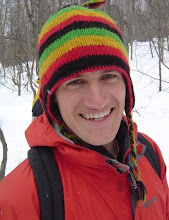
A BASE jumper was injured in Provo's Rock Canyon last week.
Richard Walkling, 25, jumped from a 450 ft. cliff on the north side of the canyon. Rock climbers who witnessed the accident said Walkling deployed his parachute and was immediately slammed into the face of the cliff.
The impact caused Walkling's parachute to partially collapse, speeding his descent. Walking's parachute swept him into the rock twice more before he landed on a small ledge some 50 ft. above the ground. Walker tumbled the rest of the way to the ground.
Amazingly, Walkling's injuries amounted to no more than a broken ankle and superficial abrasions.
“It was surprising, really surprising,” said Eric Schmitt, one of the first to come to Walkling's aid. “I didn't expect as little as a broken ankle.”
“He probably should have been dead,” said Shawn Peterson, who was with Schmitt.
Peterson and Schmitt, both certified as wilderness first responders, provided first aid until emergency crews arrived.
Police closed the canyon for about two hours while emergency crews brought Walkling down the hillside to a waiting ambulance.
A rescue helicopter landed in the canyon, but was not used in the rescue.
A friend (Kevin You) and I drove to Rock Canyon to climb last Tuesday. We found the police blocking the road. We followed the lead of other climbers and snuck around the police and emergency crews by hiking through the bushes on the south side of the canyon. We found my friends Shawn and Eric climbing with the students at the Aspiro wilderness/adventure program (where I used to work). We learned that they were the first ones to reach the injured jumper and had helped carry him down the hillside. I put my point-and-shoot camera on video mode and had them tell their story.
Here Eric talks about his experience.




